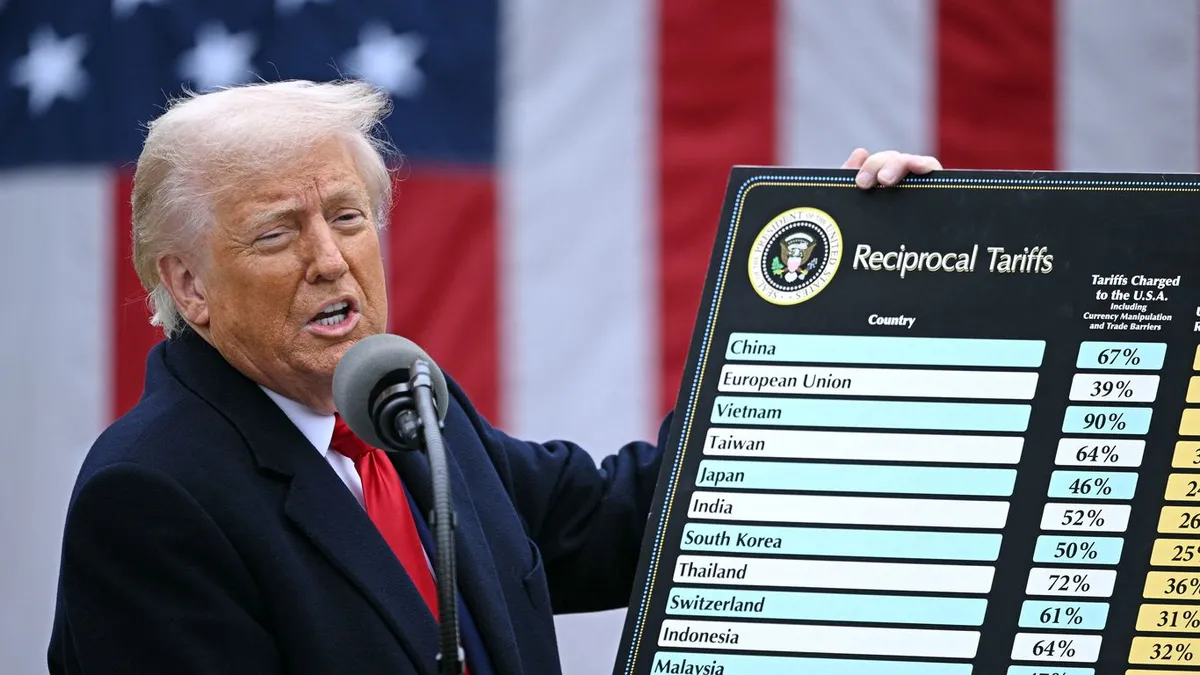
In a bold move to reshape the American economy, former President Donald Trump is touting what he calls an economic revolution. As he pushes forward with his tariff policies, several economists are raising alarms about the potential for an impending recession. Despite these warnings, Trump remains optimistic that the heavy price of tariffs will ultimately benefit American workers.
Trump's strategy involves imposing 10% universal tariffs on a wide array of imports, a decision that has sparked significant debate among economists and market analysts. The former president urges Americans to "hang tough," insisting that these tariffs will lead to a more robust domestic economy. However, as the tariffs take effect, many are questioning whether this approach will yield the desired results or exacerbate existing economic challenges.
The response from the stock market has been dramatic, with the Dow Jones Industrial Average plunging over 2,200 points in reaction to the tariff announcements. This significant drop illustrates the investors' concerns regarding the potential fallout from Trump's aggressive trade policies. Financial experts warn that escalating tariffs could lead to increased costs for consumers and manufacturers alike, ultimately hindering economic growth.
As stocks tumble and uncertainty looms, investors are becoming increasingly wary of the long-term implications of Trump's tariff plan. Major financial publications, including CNN and The New York Times, have highlighted how the tumultuous market reactions reflect deeper anxieties about the health of the U.S. economy. With rising prices and potential job losses on the horizon, the call for a balanced approach to trade and economic policy is louder than ever.
While Trump champions his economic revolution with the promise of job creation and local industry revitalization, the warnings from economists cannot be overlooked. As the effects of the tariff policies unfold, it remains to be seen whether this gamble will pay off for Americans or lead to a recession that could affect millions. For now, the nation watches closely as this economic experiment continues to evolve.